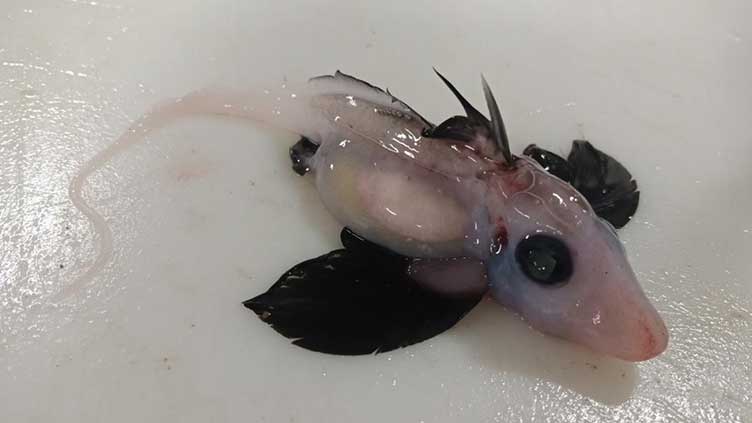Rare baby ghost shark discovery delights New Zealand scientists

WeirdNews
Rare baby ghost shark discovery delights New Zealand scientists.
SYDNEY (Reuters) - While typically heard in an omnipresent children s song, the phrase baby shark has delighted New Zealand scientists after the rare discovery of a juvenile ghost shark during a survey off the east coast of the country s South Island.
Ghost sharks, also known as chimaeras, are not really sharks but are related to sharks since both of their skeletons consist of cartilage rather than bone.
Not much is known about these marine creatures because they usually reside at depths of up to 6,000 feet (1,829 metres), largely inaccessible to researchers.
"What we do know tends to come from the large adults which are usually a metre, a metre and a half in length, so finding one that actually kind of just sits in the palm of my hand is incredibly uncommon," Brit Finucci, a scientist at New Zealand s National Institute of Water and Atmospheric Research told Reuters on Thursday.
This newly hatched ghost shark was grabbed from a depth of 1.2 kilometres (0.75 mile), Finucci said. Photos of the baby ghost shark showed black fins connected to a body of translucent skin with a wispy white tail and black eyes.
"I thought it was cool, other people on the boat not so much," laughed Finucci. "I knew right away it was just something different that we don t generally come across so I grabbed it and took a couple of photos which have now spread all over the internet."
Juvenile ghost sharks tend to be found at different depths than the adults and in some cases look different than the adults, she said. The creatures, which are also called ratfish, rabbitfish, elephant fish or spookfish, have large heads and oversized eyes versus their body.
Ghost shark embryos develop in egg capsules laid on the sea floor, feeding off a yolk until they are ready to hatch.
The "very rare and exciting find" will give some insight into the species, she said. "It kind of fills in some of the little gaps here and there."

